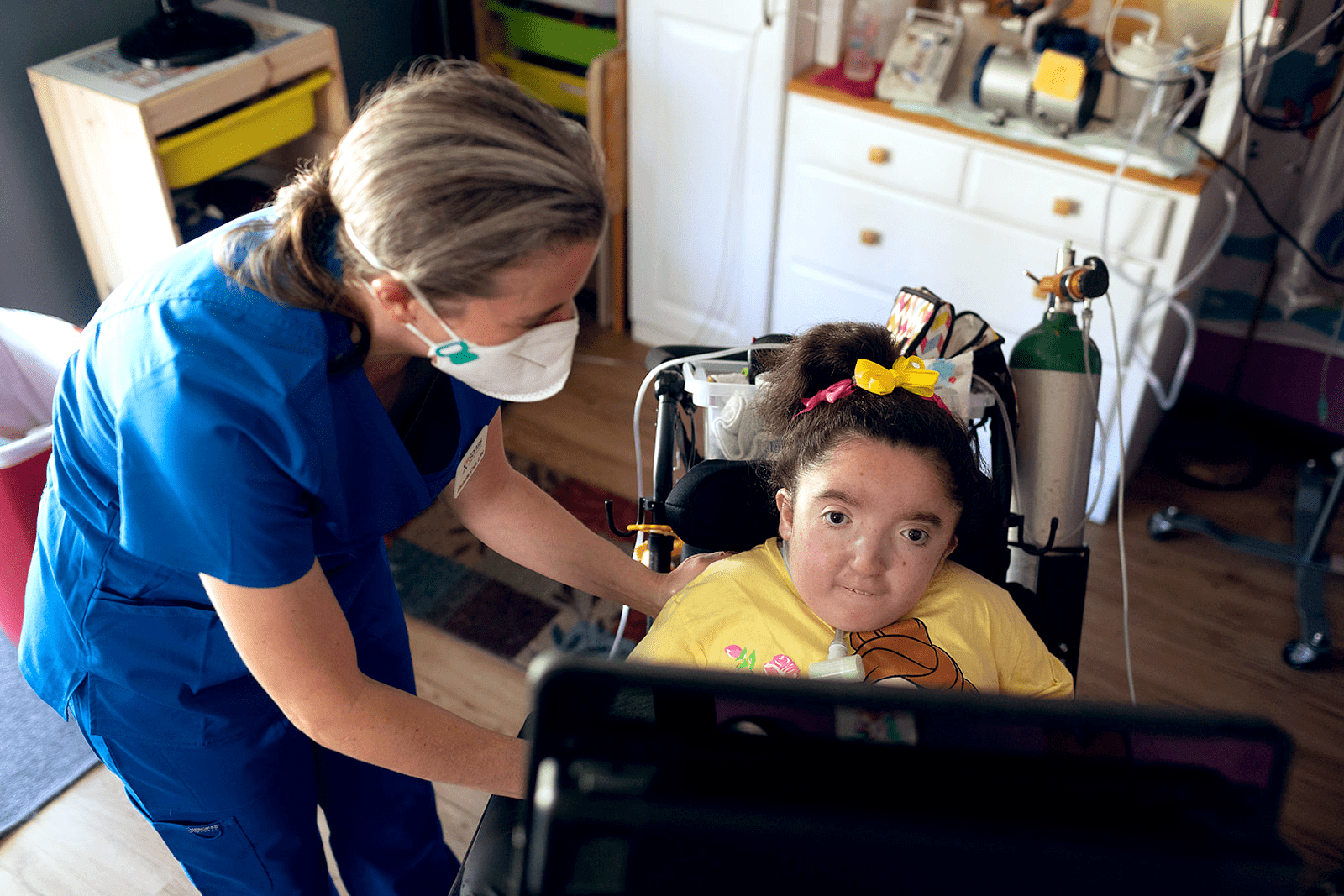Effective communication is the cornerstone of optimal patient care in the healthcare landscape. As frontline healthcare professionals, nurses play a pivotal role in fostering clear and compassionate communication. This comprehensive blog post will explore the essential communication skills that nursing professionals need to master for successful patient outcomes and collaborative healthcare environments.
1. Active Listening
To actively listen, you need to understand patient concerns and interpret non-verbal cues. Active listening is fundamental for nurses to comprehend patients’ concerns, fears, and questions. Nurses can establish trust and create a supportive environment by giving undivided attention and responding empathetically.
Nurses must be adept at interpreting non-verbal cues, such as body language and facial expressions, to grasp the full spectrum of patients’ emotions and needs. This skill enhances the ability to provide holistic and patient-centered care.
2. Clear and Concise Communication
To have clear and concise communication, you will need to avoid medical jargon and give concise handovers. Effective communication in nursing involves using language that patients and their families can understand. Avoiding medical jargon and conveying information clearly and straightforwardly ensures that patients comprehend their conditions, treatment plans, and medication instructions.
Clear and concise communication extends to the handover process between shifts. Nurses must provide accurate and succinct information to ensure continuity of care, emphasizing critical details and potential risks.
3. Empathy and Compassion
Cultivating a caring demeanor and acknowledging emotional needs help create an environment of empathy and compassion. Empathy is the ability to understand and share the feelings of others. Nurses who cultivate a caring demeanor and express genuine concern contribute to a positive patient experience. Compassion enhances the therapeutic relationship and fosters emotional well-being.
Recognizing and acknowledging the emotional needs of patients and their families is crucial. Whether delivering good news or discussing challenging topics, nurses with empathetic communication skills can navigate difficult situations with sensitivity.
4. Cultural Competence
Cultural competence is paramount in healthcare settings with diverse patient populations. Nurses must understand and respect cultural differences, including communication styles, beliefs, and healthcare practices, to provide culturally sensitive care.
In multicultural environments, overcoming language barriers is a key aspect of effective communication. Nurses may utilize interpreter services or multilingual resources to ensure accurate information exchange and patient understanding.
5. Therapeutic Communication
Therapeutic communication builds trusting relationships. Therapeutic communication is centered around building trusting relationships with patients. Nurses employ open-ended questions, active listening, and validation to create an atmosphere where patients feel comfortable expressing their concerns and collaborating on their care plans.
Nurses must skillfully provide information about diagnoses, treatments, and procedures while gauging patients’ readiness to receive such information. Tailoring the communication approach to each patient’s needs promotes understanding and shared decision-making.
6. Effective Team Communication
Effective team communication comes from interprofessional collaboration and utilizing communication tools. Nurses collaborate with various healthcare professionals to ensure comprehensive patient care. Effective team communication involves clearly articulating patient information, timely updates, and collaborative problem-solving.
In the digital age, nurses use communication tools such as electronic health records (EHRs) and secure messaging systems to share information efficiently. Mastery of these technologies enhances communication within healthcare teams.
7. Conflict Resolution
Conflict resolution comes from navigating challenging conversations and seeking clarification. In high-stakes healthcare settings, nurses may encounter conflicts or challenging conversations. Skills in conflict resolution enable nurses to address disagreements respectfully, find common ground, and maintain a focus on patient well-being.
When faced with misunderstandings or disagreements, nurses should proactively seek clarification to ensure accurate communication. This involves asking questions, summarizing information, and verifying understanding.
8. Patient Education
Patient education is a crucial aspect of nursing communication. Nurses must tailor information to the individual’s level of health literacy, ensuring that patients comprehend instructions, follow-up care, and the importance of lifestyle modifications.
Enhancing patient education involves using visual aids, such as diagrams, videos, and written materials. These tools assist in conveying complex medical information in an accessible and memorable format.
9. Adaptability and Flexibility
Nursing professionals often work in dynamic environments, requiring adaptability in communication. Adjusting communication styles based on the patient’s preferences, acuity level, or specific context contributes to effective care delivery.
Nurses must be adept at handling unexpected challenges, such as sudden changes in a patient’s condition or unforeseen communication barriers. Flexibility ensures that nurses can navigate these situations with poise and effectiveness.
10. Feedback and Reflection
Continuous improvement in communication skills involves receiving constructive feedback and offering feedback to colleagues. Nurses who actively engage in reflective practice can identify areas for growth and enhance their effectiveness in patient interactions.
Ongoing professional development is essential for nurses to stay abreast of advancements in healthcare communication. Attending workshops, seminars, and training programs can sharpen communication skills and provide exposure to evolving best practices.
Mastering communication skills is an ongoing journey for nursing professionals, deeply intertwined with delivering high-quality patient care. From active listening and cultural competence to conflict resolution and patient education, each skill contributes to the holistic and patient-centered approach that defines nursing practice. Nurses who prioritize the development of effective communication skills not only enhance patient outcomes but also contribute to collaborative and supportive healthcare environments. As the healthcare landscape evolves, the importance of communication skills remains unwavering, positioning nursing professionals as vital advocates for patients and champions of compassionate care.
Join the Care Options For Kids Team!
Are you ready for meaningful work that comes with benefits and not burnout? Join the compassionate care team that helps children and families live their best lives. Our clinicians provide best-in-class pediatric nursing, therapy, and school-based services. We bring individualized care to children where they live, work, and play. We have opportunities in homes, schools, and clinics across the country.
Apply at Care Options for Kids now. We make it easy to get started, so you can begin making a difference as soon as possible.






